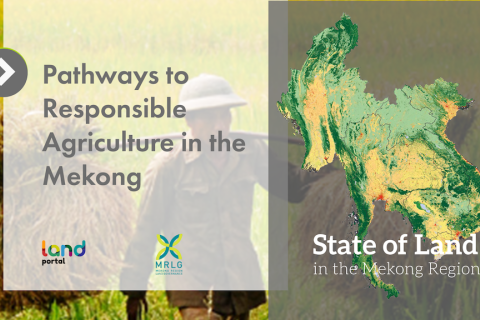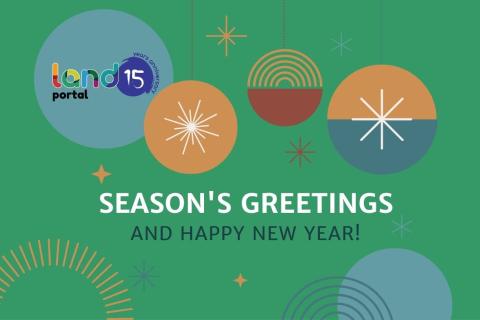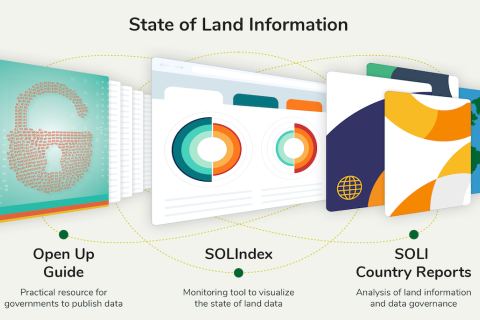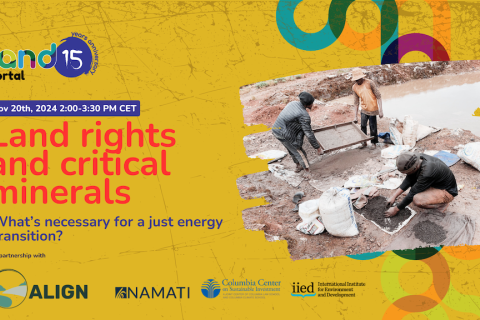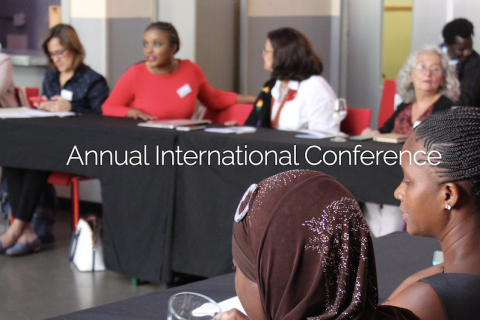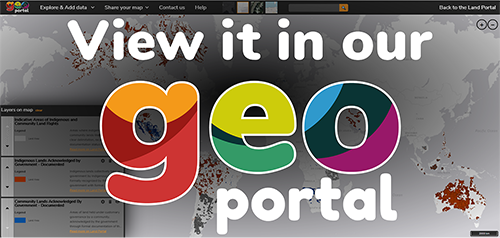Pathways to Responsible Agriculture in the Mekong
23 January 2025
Thursday, 23 January 2025
3:00-5:00 pm Bangkok | 9:00-11:00 am CET
Register now
Land Portal Foundation
Mekong Region Land Governance
2024: Thank you from the Land Portal
19 December 2024
Dear Friends and Colleagues:
As we approach the end of another remarkable year, I want to express my heartfelt gratitude for the collective effort that fuels the Land Portal. Your engagement, insights, and contributions make the Land Portal a trusted source of land information, and your feedback inspires us to improve as a convening space and platform for the global land community.
NEWS: Introducing the State of Land Information Index (SOLIndex)
19 December 2024
The SOLIndex assesses the completeness and openness of public sector land data at the country level. The Land Portal has developed a data dashboard for users to visualize the situation of land information by country. This interactive data dashboard marks a milestone in a journey that started over a decade ago with our first SOLI research reports.
700+ indicators
Statistical data aggregated from trusted providers
73,000+ resources
Searchable library of open access publications
Countries
Land-locked Laos has the lowest population density in Southeast Asia and livelihoods mostly rely on rice farming and non-forest products. In 2023, the remaining forest cover reached a historic low with 40%. As a result of the Turning Land into Capital Strategy in 2006, the country has experienced massive investments in hydropower, and agricultural and forest concessions. The revised Land and Forestry laws of 2019 recognize customary tenure for the first time. Laos is highly vulnerable to climate stress.
Nicknamed the "country of the distant sunset," due to its western location compared to Levant countries of the Middle East, Morocco is a Maghreb country characterized by a wide variety of natural environments. Its landscapes range from snow-capped peaks to desert areas dotted with oases, arable plains, and oak and cedar forests. Over time, Morocco's rich history has shaped the way land is governed. The Islamization of the country, its colonization, and then its accession to independence successively transformed customary practices but did not entirely eliminate them. This complex history has resulted in a layered land tenure system, with different categories of land established during these various periods existing side-by-side today.
Issues
Forests and woodlands provide livelihoods for many communities who rely on timber, firewood, building materials, non-wood forest products, fodder, food, medical plants, and water. According to FAO, more than 2.6 billion people depend on forests and their products and services which are mostly used informally. Despite the importance of forest tenure reform, it has not received enough attention. Forest tenure and property rights determine who owns and manages forest resources.
The SDG Land Tracker provides easy access to official data and information on all land-specific SDG indicators. It concisely explains the indicators, why they are important, and tracks progress.

